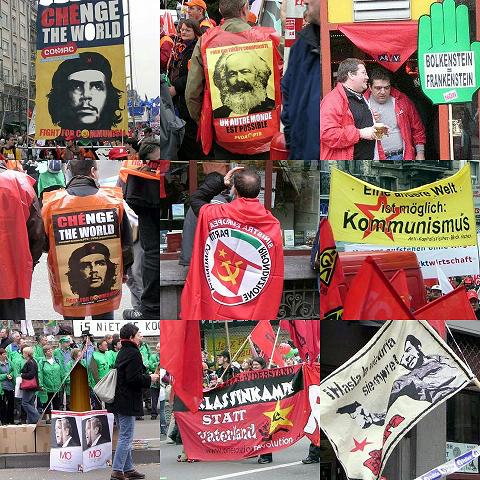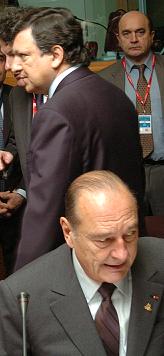Europeans are proud of their record of support for freedom of speech, and tolerance of dissident views. But there is a glaring exception to this record.
In Germany, France, Austria, Belgium, Switzerland and several other European countries, as well as in Israel, it is a crime to publicly dispute the official version of Holocaust history. Those who express dissident views about this chapter of history are routinely imprisoned, fined or forced into exile.
Currently three prominent “Holocaust deniers” are being held behind bars in Europe।
Europe’s best known “thought criminal” is David Irving, an author of numerous books on military history and World War II, including several international bestsellers. The 68-year-old British historian has been held since November 11, 2005, when he was arrested during a visit in Austria for the “crime” -- committed 16 (!) years earlier -- of having referred to “mythical” gas chambers in Auschwitz during talks in the country. Denied bail, he was held until his trial on February 20, 2006, when a court in Vienna sentenced him to three years in prison for his “denial” remarks.
Newspapers, political leaders and intellectuals around the world immediately denounced the surprisingly harsh sentence, as well as the laws under which he and other “deniers” have been imprisoned and fined. (The only voices of approval were the predictable Zionist ones.)
During his months behind bars, Irving has been devoting time to history writing, to reading, to his correspondence, and to a memoir of his prison ordeal. He has appealed his sentence, and hopes for an early release.
His prison address is:
David Irving
Gef. Nr. 70306
Justizanstalt Josefstadt
Wickenburggasse 18-20
1082 Vienna
Austria
Ernst Zundel
Ernst Zundel -- a German-born publicist, graphic artist and publisher -- was arrested on February 5, 2003, at the home in rural eastern Tennessee where he had been living quietly with his wife, Ingrid Rimland. He was seized on the pretext that he had missed an interview date with US immigration authorities, even though he had entered the US legally, was married to a US citizen, had no criminal record, and was acting diligently, and in full accord with the law, to secure status as a permanent legal resident.
After being held for two weeks, he was deported to Canada. For two years -- from mid-February 2003 to March 2005 -- he was held in solitary confinement as a supposed threat to “national security.” His arrest and detention generated wide media attention. A few Canadian newspapers, including Toronto’s prestigious Globe and Mail, and several independent analysts, acknowledged the injustice of his incarceration on an empty pretext. On March 1, 2005, Zundel was deported to Germany, and since then has been held in the Mannheim prison.
He was charged with inciting “hatred” by having written or distributed texts that “approve, deny or play down” genocidal actions carried out by Germany’s wartime regime, and which “denigrate the memory of the [Jewish] dead.” The first and foremost of the writings cited in the indictment are texts posted on the “Zundelsite” website, which is registered and maintained by his wife in the United States, where all such writings are entirely legal. The indictment warned that he could be punished with four years imprisonment.
Zundel’s trial in Germany began on November 8, 2005, with a dramatic clash between his attorneys and the presiding judge. In the months since then, the drawn-out proceedings have sometimes been contentious, but more often have bogged down in disputes over evidentiary and procedural issues.
For some time the many Zundel supporters who routinely appeared in the courtroom showed their respect for the defendant at the start of each session by rising when he entered the chamber. But the judge eventually prohibited this and all other expressions of sympathy.
The trial is set to continue at least into early December.
The 67-year-old Zundel has been held behind bars for nearly three years now -- without ever having been found guilty of any crime! In his prison cell, he closely follows international news and trends, writes letters, and reads. His diet and living conditions, he reports, are at least better than they were during his incarceration in Canada.
Letters reach him at:
Ernst Zündel
JVA Mannheim
Herzogenrieder Str. 111
D - 68169 Mannheim
Germany
Germar Rudolf
Born in Germany in 1964, Germar Rudolf began a serious investigation of the “gas chamber” issue while enrolled in a doctoral program at the prestigious Max Planck Institute for Solid State Physics. The youthful chemist carried out a forensic examination of the alleged gas chambers at Auschwitz-Birkenau and concluded for a variety of technical reasons that they could not have been used for executions.
After the publication in 1993 of his findings, he was dismissed from the institute, and a court in Stuttgart ruled that his report “denies the systematic mass murder of the Jewish population in gas chambers,” and therefore constitutes “popular incitement,” “incitement to racial hatred,” and “defamation.”
In 1996 he was sentenced to 14 months in prison. Rather than serve the sentence, he fled the country, first to England and then to the United States. While in the US he ran a publishing firm that issued an impressive array of scholarly revisionist titles, and he oversaw the publication of two revisionist periodicals, one in German and one in English.
In October 2005 he was arrested in Chicago, and a few weeks later was deported to Germany, even though he and his American wife (a US citizen) were parents of a young daughter. Since then he has been serving his “original” 1996 sentence in German prisons. His trial on more recent “denial” crimes began in Mannheim on November 14, 2006, and is expected to last at least two months.
Letters reach him at:
Germar Rudolf
JVA Heidelberg
Oberer Fauler Pelz 1
69117 Heidelberg
Germany





